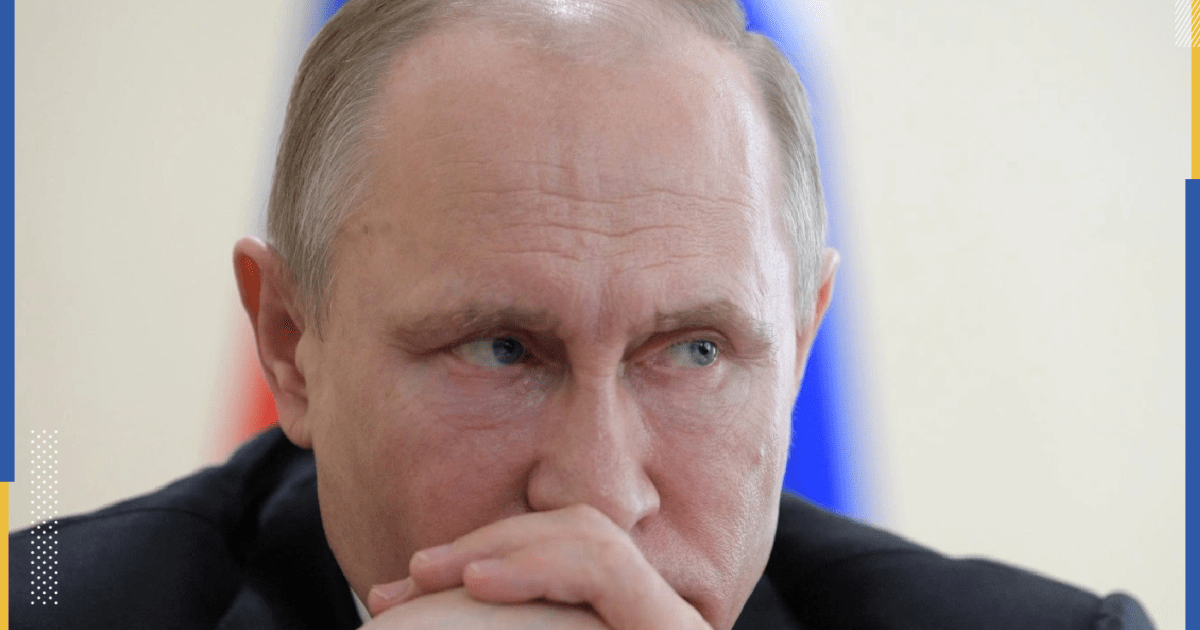The American magazine "Foreign Affairs" published an article by an American researcher specializing in issues of war and peace, in which he addressed the consequences of what might happen if Russian President Vladimir Putin used nuclear weapons in his war on Ukraine.
Under the title "Thinking the Unthinkable in Ukraine", Richard K. Bates, a professor of war and peace studies at Columbia University in New York City, wondered in his article in the magazine what would happen if Putin acted recklessly and without controls and resorted to his nuclear weapon.
He began the answer by saying that the Russian president has been beating the drums of war since he threatened a possible nuclear strike when he warned in his first statement last February, "Anyone who tries to block our path - not to mention threatens our country and its people - should be aware that the Russian response will be immediate and will lead to consequences." Never seen in history."
hollow arrogance
Western observers saw that statement as a form of vanity and "hollow" arrogance, as the article put it.
After everything - according to the author of the article - the side that will begin to launch the first nuclear strike is the one who will take a risky adventure;
He will bet that his opponent will not retaliate in the same way or more harmfully.
Planning for the possibility that Russia will use nuclear weapons is inevitable, with the greatest danger being if the war turns decisively in Ukraine's favour.
And this is the only situation - in Bates' opinion - that will motivate the Russians to take a great risk, which seems logical, in an attempt by Moscow to prevent it from suffering defeat, by resorting to the shock method to push Ukraine and its supporters from the North Atlantic Treaty Organization (NATO) to retreat.
Bates believes that the Russians might do this by using one or a few tactical nuclear weapons against Ukrainian forces or by causing a symbolic explosion over an empty area.
Three options
The writer, who works as a researcher at the Council on Foreign Relations, adds that there are 3 general options that can help US policymakers in diversifying the response to a Russian nuclear attack on Ukraine.
The United States might prefer to content itself with verbal denunciations of any nuclear explosion, without doing anything of a military nature.
It could also use its own nuclear weapons, or refrain from launching a nuclear counterattack, but enter the war directly with large-scale conventional air strikes and ground force buildup.
Bates describes those options as all bad, as there are no low-risk alternatives to dealing with a situation like this to end a nuclear war, adding that the traditional response is the least bad option because it avoids the greater risks that lie in the other two options.
The War and Peace Studies professor goes on to say that over the past three decades, US policymakers have paid little attention to the potential dynamics of nuclear escalation.
Cold War period
By contrast, this issue was at the center of the strategic dialogue among these Cold War policy experts when NATO adopted the principle of "deliberate escalation" - beginning with the limited use of tactical nuclear weapons - as a means of staving off a Soviet invasion.
It is true that this strategy was controversial - in the eyes of the American academic - but it was adopted;
Because the West believed that its conventional forces were inferior to their counterparts in the Warsaw Pact.
With the upheaval in the balance of power since the Cold War, the current Russian doctrine of "escalation to de-escalation" has tended to mimic NATO's "flexible response" concept during the Cold War.
According to the article, NATO policymakers should not count on Moscow's restraint;
Putin has more to lose in the war than the pro-Ukrainian nuclear-armed states.
He might act like crazy
Perhaps the Russian president is betting that if the situation worsens, Washington will be less willing than he is to gamble with a foolish act.
But he might go crazy and resort to nuclear shock at an acceptable risk of ending the war on Russian terms.
As NATO faces the possibility of Russia using nuclear weapons, the first question that needs to be answered is whether this possibility should constitute a real red line for the West.
In other words, would a Russian nuclear attack shift NATO from merely providing Ukraine with weapons and materiel to engaging directly in the fighting itself?
In his answer, the writer explains that the Russian logic in the use of tactical nuclear weapons may be aimed at intimidating NATO from crossing this line to the extent that it forces Ukraine to surrender.
If America does not respond by direct combat?
If Russia's use of a few of its nuclear weapons does not push the United States into direct combat, Moscow will have the green light to use more of these weapons and quickly crush Ukraine.
And Bates concludes by saying that in the event of such a challenge - although it is still a hypothetical challenge until now - entering into a nuclear war would be an experience that the Americans do not want to go to.
For this reason, there is a very real possibility that policymakers will end up making the weakest option, which is to rhetorically about the unimaginable barbarism of Russia, and to resort to imposing whatever unused economic sanctions are still available, but without doing anything. military thing.

